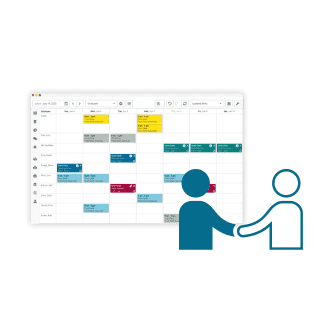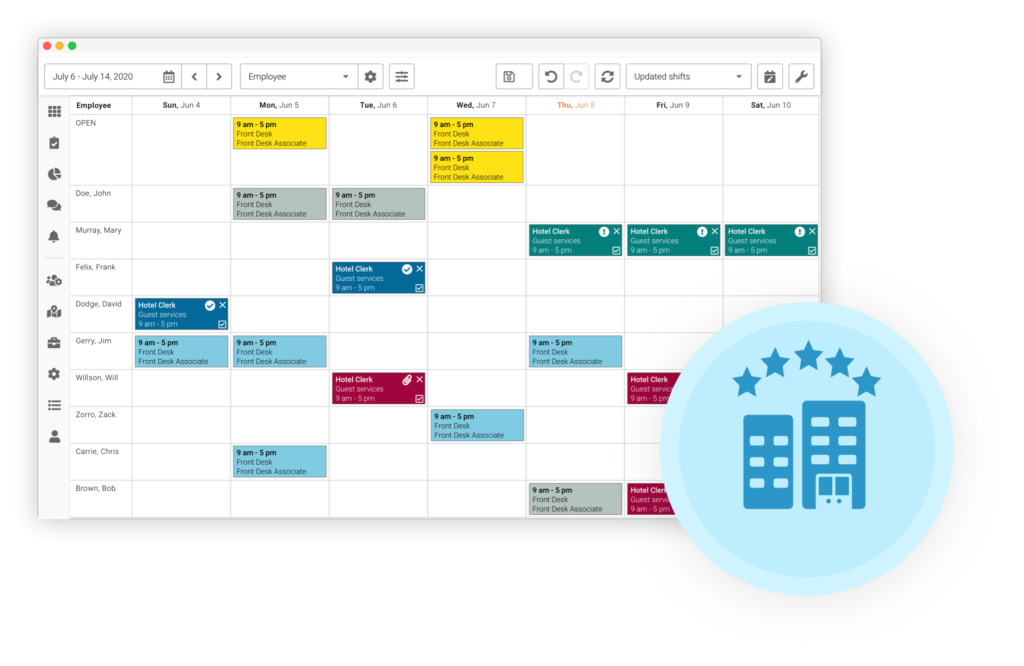In today’s fast-paced and ever-changing work environment, the concept of a fair workweek has gained significant attention. Employees and labor advocates have been pushing for policies and regulations that promote predictability and fairness in employee scheduling. This guide aims to provide you with a comprehensive understanding of what a fair workweek entails, why it’s important, and how it can benefit both employees and employers. So, let’s dive into the essentials of a fair workweek.
What Is a Fair Workweek?

A fair workweek is a set of policies and practices designed to ensure that workers have stable and predictable work schedules. It addresses issues such as last-minute schedule changes, on-call shifts, inadequate rest periods, and overreliance on part-time or gig work. The goal is to strike a balance between the needs of employers and the well-being of employees, ultimately creating a more equitable workplace.
Why Is It Important?
Employee Well-Being:
Fair workweek policies promote better work-life balance by giving employees the ability to plan their personal lives around their work schedules. This reduces stress and burnout, leading to happier and more productive workers.
Financial Stability:
Predictable work hours and income help workers manage their finances more effectively. They can budget for bills, childcare, and other expenses, reducing financial insecurity.
Health Benefits:
Regular and predictable work schedules contribute to better physical and mental health outcomes for employees. It reduces the risk of chronic stress and associated health issues.
Improved Job Satisfaction:
Employees who have control over their schedules tend to be more satisfied with their jobs. This can lead to higher employee retention rates and reduced turnover for employers.

Legal Compliance:
Many cities and states have started implementing fair workweek laws and regulations to protect workers’ rights. Employers must comply with these laws to avoid legal issues and penalties.
Fair Workweek Policies and Practices
There are very clear guidelines that employers need to follow in order to comply with Fair Workweek. However, these laws differ from state to state. In fact, it can be costly if these rules are broken! In Chicago for example, if an employer violates the policy, a single violation could cost up to $500. So, here are some of the common policies currently in place in some states/jurisdictions;
Advanced Notice:
Providing employees with advance notice of their work schedules, typically two weeks in advance, allows them to plan their lives around their work commitments.
No On-Call Scheduling:
Eliminating on-call shifts ensures that employees have guaranteed hours and aren’t required to be available at a moment’s notice.
Rest Periods:
Ensuring that employees have adequate rest periods between shifts prevents fatigue and promotes safety.

Steady and Predictable Hours:
Offering consistent work hours to employees, rather than constantly changing shifts, helps in planning and managing personal lives.
Access to Full-Time Positions:
Encouraging the transition of part-time workers to full-time positions with benefits can improve job security and employee satisfaction.
Fair Compensation:
Fair workweek practices often include fair wages, overtime pay, and other benefits to ensure that employees are compensated fairly for their work.
Benefits for Employers:
While implementing fair workweek policies may seem like an additional cost for employers, there are several benefits for them as well:
- Reduced Turnover: Predictable schedules and increased job satisfaction among employees lead to lower turnover rates, saving employers recruitment and training costs.
- Increased Productivity: Happier and more engaged employees are often more productive, contributing positively to the company’s bottom line.
- Compliance and Legal Protection: Adhering to fair workweek laws and regulations helps employers avoid costly legal disputes and penalties.
Fair Workweek FAQ
So, now that we know a bit more about fair workweek and predictive scheduling laws, let’s take a look at some frequently asked questions. These questions are often asked by employers to help them better understand how to handle workforce management under these laws.
WHEN DID FAIR WORKWEEK START?
Let’s start this one off by explaining that each city/state/municipality can set their own fair workweek laws – they are not federal regulations. In fact, San Francisco was the first city in the United States to pass fair workweek laws. This happened in 2014, with many other cities following suit.
From 2015 to 2017, large companies and retailers started using fair workweek practices as standard employee scheduling procedures. This was a result of multiple state attorneys putting pressure on them regarding their previous scheduling practices. As of today, 2 states and 8 municipalities have enforced some form of fair workweek regulation, with more to follow.
WHY DID FAIR WORKWEEK LAWS COME ABOUT?
To be honest, it appears that these fair workweek regulations came about for many reasons, but the main one was research. To understand this, it’s important to note the fundamentals of workforce management; having the right people, in the right place, at the right time. Retailers and hospitality organizations often believe that on-call scheduling is the best way to match staffing to demand.
However, this is simply not the case. If this was true, you would assume that most schedule changes are due to increased/decreased customer traffic, right? Well, according to the Harvard Business Review, only 30% of schedule changes are actually due to customer traffic. The other 70% are generally related to sick calls, no-shows, or shift swaps – all of which are linked to scheduling practices.
When employees have a general idea of how many hours, or what days they will work, there are fewer reasons for schedule changes. There is also evidence to suggest that productivity increases when employees have predictable schedules under fair workweek initiatives. So, while these laws were brought about to protect employees, they ultimately benefit the organization too!
WHICH EMPLOYEES DO FAIR WORKWEEK LAWS APPLY TO?

As mentioned above, these fair workweek initiatives are aimed at specific workers in specific industries. This differs depending on the specific laws in particular industries, but generally part-time/hourly workers in hospitality, retail, and food services organizations are protected. Depending on the area, there are further specifications based on a minimum number of employees and locations, etc. In general, fair workweek laws do target larger businesses with multiple locations and a large workforce, but can certainly still apply to smaller businesses in certain locations too.
WHAT DOES THIS MEAN FOR NECESSARY SCHEDULE CHANGES?
At the end of the day, businesses always have to expect the unexpected. Regardless of predictive scheduling, there will always be emergencies, sick calls, and unexpected issues. With these problems, come necessary schedule changes. Under fair workweek initiatives, making these changes is not impossible, but may come with a price.
Depending on the area, if you change an employee’s schedule on short notice, you might need to compensate them with 1-4 hours of pay. The amount of pay depends on the period of notice provided and the length of the shift. We recommend checking your local municipality laws to find out more about these fees.
WHAT DO I NEED TO REMEMBER WHEN CREATING MY SCHEDULE?

While all fair workweek laws are slightly different, most of them include the same basic employee scheduling requirements.
- Employee schedules must be provided to employees up to 21 days in advance depending on local laws.
- Electronic copies of schedules must be provided to employees.
- “Clopening shifts” are not prohibited. Clopening shifts are when employees are on closing and opening shifts within the same 10-hour window.
- Employers should provide “good-faith” estimates of predicted hours for all new employees.
- Employers must give long-term employees priority to claim additional hours before seasonal workers.
So, depending on what your current employee scheduling processes are, you might need to adapt your practices to be compliant. If you manually create your schedules, you will likely have to make quite a few changes. However, if you use employee scheduling software, you can simply create new business rules around fair workweek laws to be compliant.
This is not a trend…
Fair workweek is not just a buzzword; it’s a vital aspect of modern employment practices. It promotes fairness, stability, and predictability for workers, ultimately benefiting both employees and employers. By implementing fair workweek policies and practices, companies can create a more equitable and productive work environment while complying with existing labor laws and staying ahead of emerging regulations.
In a world where work is increasingly complex and fast-paced, embracing the essentials of a fair workweek is not just good for business; it’s the right thing to do for the well-being of your workforce. It’s also something you should discuss when hiring new employees. So, take the necessary steps to ensure that your organization is on the path to providing a fair and predictable workweek for all. Celayix software can help you be fair workweek compliant, while also saving you time and money. If you’d like to hear more about how, you can request a free live demo today! You can also sign up to a free trial account here.





